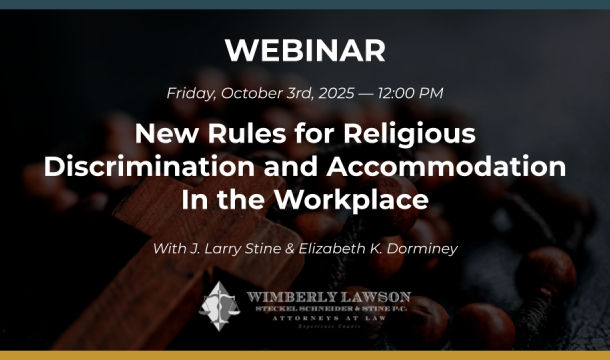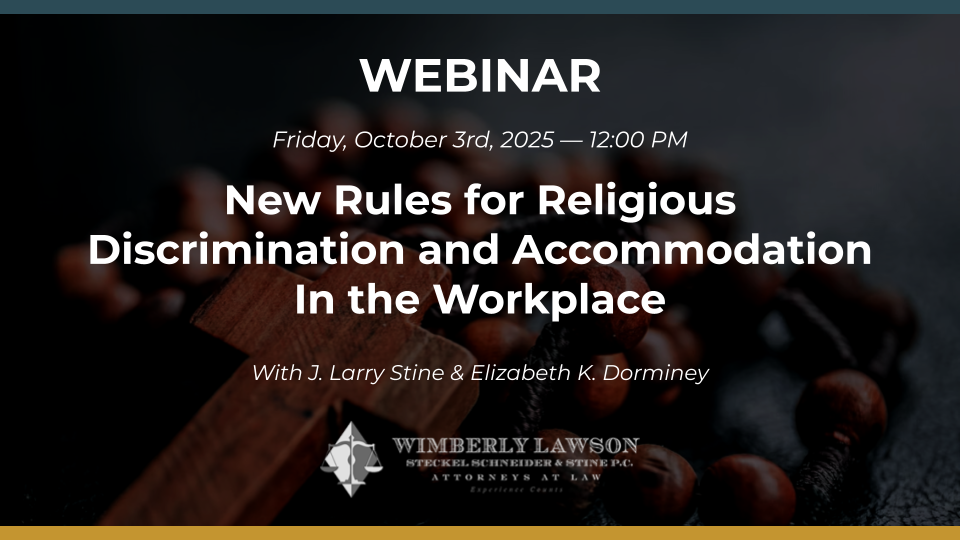Confidentiality Provisions in Settlement Agreements Under Fire
One of the issues that has come to light in discussions of the recent allegations of harassment against high-profile corporate and entertainment figures is that of confidential settlement agreements. We have learned that in the past, women who have complained about harassment by these men have reached confidential settlements with the companies. In other words, the women received money and agreed to keep the amount and other terms of the settlement confidential. Now some are concerned that this enables serial harassers to continue their unacceptable conduct without warning to other employees or potential victims. Legislators in the states of Pennsylvania, New Jersey, and New York have introduced or are discussing the possibility of introducing legislation that would prevent the enforcement of such confidentiality provisions.
Confidentiality provisions in agreements that settle employment matters are very common. Employers generally insist on them if they are paying any significant amount of money to settle a claim or case. Companies prefer to keep significant monetary payments confidential to avoid encouraging other claimants to come forward also looking for money, and to avoid possible negative publicity. Companies often settle cases after analyzing the costs and risks of litigation, and not necessarily as an admission of guilt. Nevertheless, the payment of a large settlement may be perceived as an acknowledgement by the company that it did something wrong. This perception may not necessarily be true, but it will be bad for business.
The claimant also avoids public disclosure of her identity as a possible victim of bad behavior. And unlike a lottery winner, she may avoid hearing from “long lost relatives” who are eager to “reconnect” when they hear she has come into money.
On the flip side, however, the confidentiality provision effectively prevents the claimant from warning her co-workers to avoid, for example, going into the office of a company executive alone with the door locked.
How does the company balance its desire for confidentiality of a settlement with the prevention of future incidents of harassment by the harasser? Ideally, this is where the duty to take prompt, effective remedial action comes into play. An employer has a duty to take prompt, effective remedial action when it learns of harassment in the workplace. An effective remedial action is one that prevents the harassment from happening again, which is often judged in hindsight. The most effective way a company can prevent a harasser from harassing company employees again is to terminate the harasser’s employment. There are also less harsh but still effective ways for a company to make the point to the harasser that workplace harassment will not be tolerated: suspension, demotion, transfer, withholding of bonuses, sensitivity training, etc. [We could do an entire blog post just on this issue.] In this environment of heightened awareness about workplace harassment, however, the worst thing a company can do is to take no action when it has evidence that harassment has occurred.
We will continue to use confidentiality provisions when appropriate to the client and circumstances. We will also continue to monitor any new developments in this area.

Kathleen J. Jennings is a former principal in the Atlanta office of Wimberly, Lawson, Steckel, Schneider, & Stine, P.C. She defends employers in employment matters, such as sexual harassment, discrimination, Wage and Hour, OSHA, restrictive covenants, and other employment litigation and provides training and counseling to employers in employment matters.
Related Content
Get Email Updates
Recent Content

Trump Nominates Appointments to NLRB and EEOC but Policy Changes Likely to Be Delayed

DOL Launches Self-Audit Programs Designed to Help Employers Improve Compliance

DOL Must Release EEO-1 Reports to the Public under Open Records Laws

Current Advice on Active-Shooter Situations

New Policy for Federal Workers and Religious Expressions

